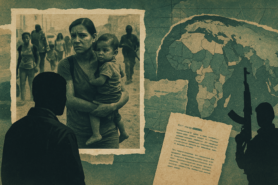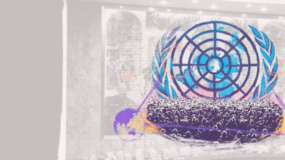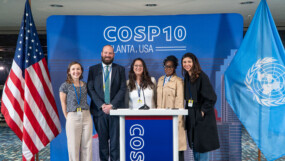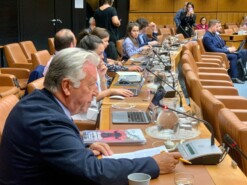Posted on 05 Dec 2023
INTERPOL’s General Assembly last week adopted its Vienna Declaration on Transnational Organized Crime, which recognizes that the grave threats and harms of transnational organized crime are of epidemic proportions, posing a shared global crisis and leaving communities unsafe around the world. The declaration calls for urgent, coordinated global action to respond more effectively.
The Global Initiative Against Transnational Organized Crime (GI-TOC), the leading global civil society organization engaged in analyzing and responding to illicit economies, concurs with this diagnosis of the threat and the need for an urgent and more strategic response. In the past few decades, transnational organized crime has grown significantly. And despite multilateral measures taken to curb it, such as the signing of the United Nations Convention against Transnational Organized Crime (UNTOC) in 2000, organized crime has accelerated since. What was once thought of as a handful of mafias operating in a few problem crime hotspots has become a pervasive threat to peace, justice and development the world over.
Data from the GI-TOC’s Organized Crime Index (2023) shows that 83% of the global population now live in countries with high criminality – up from 79% in 2021, the previous iteration of the Index. It also shows that, today, the most prevalent types of criminal actors are those linked to the state. State-embedded actors, operating at various levels in the systems of governments and their ministries, agencies and enterprises now constitute the most widespread category of criminal ‘group’ in the world. Their pervasiveness is a sign of how the activities of the underworld and upperworld, including the private sector, have grown increasingly blurred. This intersectional space is where organized crime thrives. Furthermore, the Index finds that the harm posed by criminal actors is increasing globally.
Cross-border cooperation is central to any effective response this global epidemic, and cooperation depends on trust. INTERPOL plays a key role in fostering such trust between law enforcement agencies. That said, police also need to build trust in their communities. Therefore, it is vital to work with civil society and to ensure civilian oversight of law enforcement related to organized crime, for example when it comes to setting priorities, measuring performance, and ensuring accountability and compliance with international human rights obligations.
Building on the responses agreed to in the Vienna Declaration, we call for more inclusive – and therefore effective – antidotes to the pandemic of TOC, based on governance that is open, transparent, embedded in the rule of law and premised on active engagement with citizens and civil society.
As the GI-TOC marks its tenth anniversary and INTERPOL its centenary, the debilitating harms of transnational organized crime are today more evident than ever. We therefore look forward to closer partnership between our two organizations in the coming years in order to reduce the impact of those harms.



